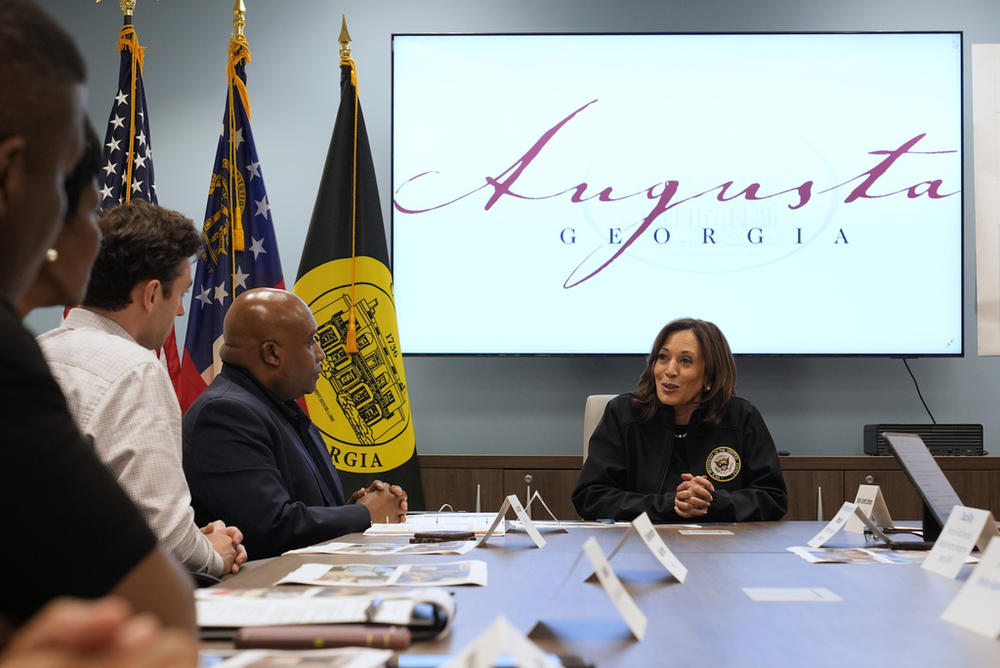
Caption
Democratic presidential nominee Vice President Kamala Harris speaks during a briefing at the Augusta Emergency Operations Center as she visits areas impacted by Hurricane Helene, in Augusta, Ga., Wednesday, Oct. 2, 2024.
Credit: AP Photo/Carolyn Kaster

